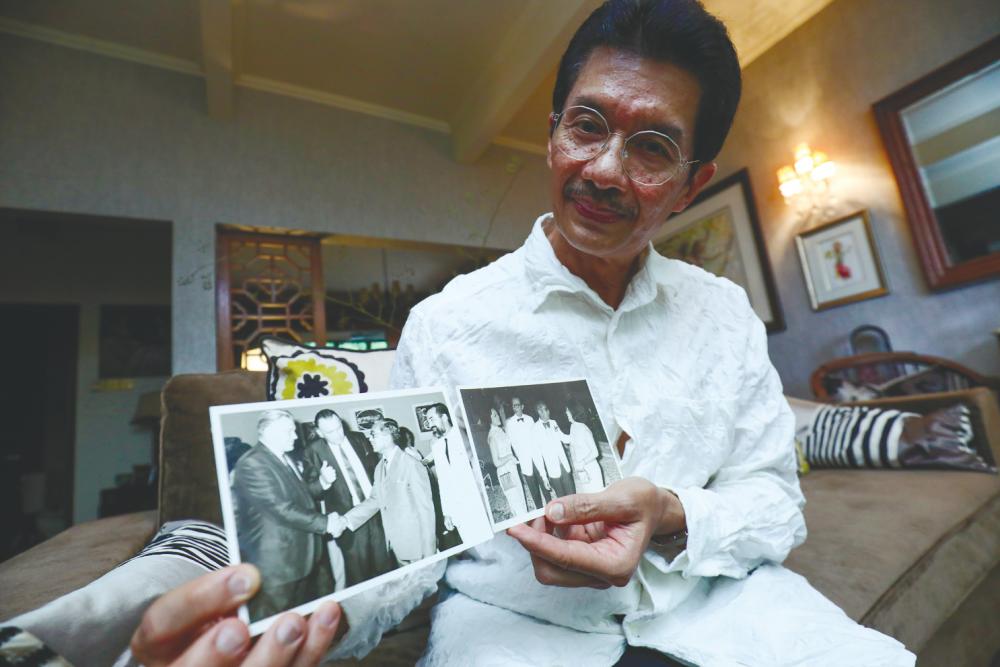KUALA LUMPUR: Mohamed Tarmizi Ismail was just 13 years old in 1973 when he saw his father and Malaysia’s second deputy prime minister Tun Dr Ismail Abdul Rahman collapse at their home in Jalan Tun Ismail.
Tarmizi said he was jolted by cries that his father had had a heart attack.
“I didn’t know what to do. We got hold of a doctor and they rushed to the house to resuscitate him upstairs. I was sitting on the staircase and the next thing I knew, the Cabinet was assembling in our living room. It was a critical moment because three people knew that (then prime minister) Tun Abdul Razak Hussein had leukaemia,” he said.
“Every time the prime minister trembled, he would hand over the instrument of power to my father, who acted as prime minister then. The crisis at that point was that we could not have a prime minister or deputy prime minister.
“It was interesting. I was sitting on the stairs watching a few Cabinet members. They were arguing about who was to take the reins, while waiting for Tun Razak to return from Canada, where he was attending a Commonwealth meeting.
“It was my first look at politics at the highest level. It was a state of crisis. My father wasn’t dead yet, but they needed to get someone to manage the country. If something happened to Tun Razak, there was no one to run it,” he added.
Tarmizi, now 62, also recounted a time when his father had been hauled back to politics to restore stability during the aftermath of the May 13 racial riots, despite his
poor health and desire to return to medicine.
“As a child, I saw a national crisis in my living room. I saw what would happen if a wrong decision was made. My father was the kind of person who just wanted everyone to be well taken care of.”
Tarmizi, who now runs an employment agency as its managing director, said his father’s need to look after people inspired a keen interest in him to provide strategic human capital as a continuance of his father’s nation-building legacy.
“It’s my job to face the decision-makers and say: ‘Why are you not deploying or optimising the talents we have?’
“There are a lot of us walking around saying we want to contribute to nation-building. We need to shake the big tree and say: ‘Look, we need to do things’.”
Tarmizi also said there was a need to optimise talent in Malaysia, and a potential employers and employees marketplace need to be created.
“A talent serves a purpose and should be put to good use,” he told theSun, adding that it is incumbent upon the government to act swiftly and revisit manpower-related policies to ensure the gaps in tapping local talents are overcome.
His Malaysia Day wish is that there be a realisation that something is wrong because the country is not progressing in skills and high-end manufacturing despite the government’s efforts.
“Neighbouring countries are overtaking us. We are becoming less relevant at the global level, and if we don’t think on our feet and move fast, we’ll be irrelevant. The country may only have another two plus years to get this right,” he said, adding that in the meantime, talents need to stand up and create their opportunity as entrepreneurs.
“In the age of communication, there is always a market. Talents have to find and create that opportunity. The days of waiting for opportunity are fast disappearing.
“You need to create your opportunities. The corporate sector is not moving fast enough to accommodate everyone.”










